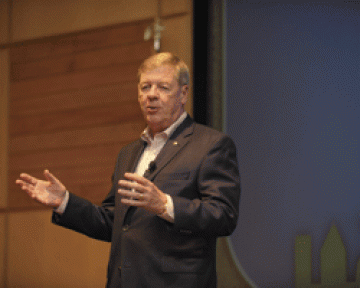Sen. Isakson Defends Government Surveillance Program

Office of Sen. Isakson

U.S. Senator Johnny Isakson (R-GA) is defending the government surveillance program revealed to be gathering call logs from millions of Verizon phone subscribers.
Speaking after a conference in downtown Atlanta, Iskason said it’s been an important tool in preventing terrorist attacks.
“I can’t talk about some of the things that I know with regard to what our security procedures are, but I am satisfied that there’s no violation of the civil rights of an American citizen in there.”
The National Security Agency and others in the intelligence community are authorized to collect the call logs under 2001’s Patriot Act. Congress maintains oversight and federal judges on the Foreign Intelligence Surveillance Court must approve all data requests. In 2011, Congress renewed the Patriot Act for an additional four years.
Isakson stressed the intelligence agencies are checking only phone numbers and locations. He said no calls are being listened to.
“The purpose for that is to get the bad guys, if you will, and that’s one way – you can track communication. Not the content, but the location.”
He said the surveillance program strikes the necessary balance between privacy rights and the need for information post-9/11.
“I’ll be the first person to tell you that is a threading of the needle that is very difficult and you have to be very careful with. And there may be time to time a mistake is made but you’re better off to try and find that sweet spot to protect the American people then have us vulnerable every singe day to attacks like what happened on 9/11.”
But Azadeh Shahshahani of the Georgia ACLU says the government has gone too far. She believes innocent Americans are being spied on without probable cause.
“Using this data the government could build a complete profile of everyone that every American has ever talked to. The government could find out about your religious associations, your instabilities, your medical conditions, and more and so I think that should pose a concern to every American who cares about their privacy.”
The ACLU has challenged in court several sections of the Patriot Act.
Short of being struck down in court, Shahshahani believes the law should be allowed to expire in 2015.
9(MDAxODM0MDY4MDEyMTY4NDA3MzI3YjkzMw004))





